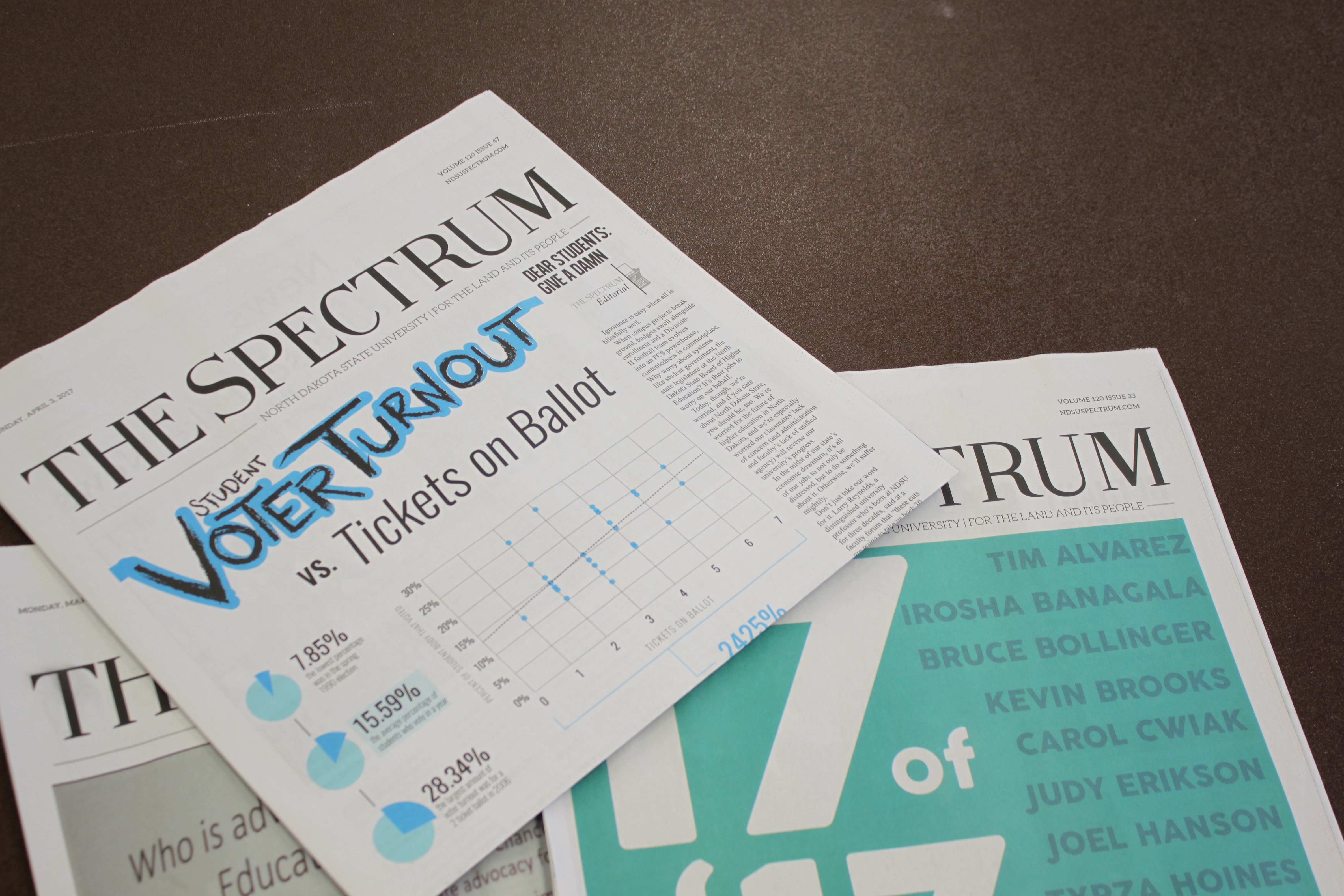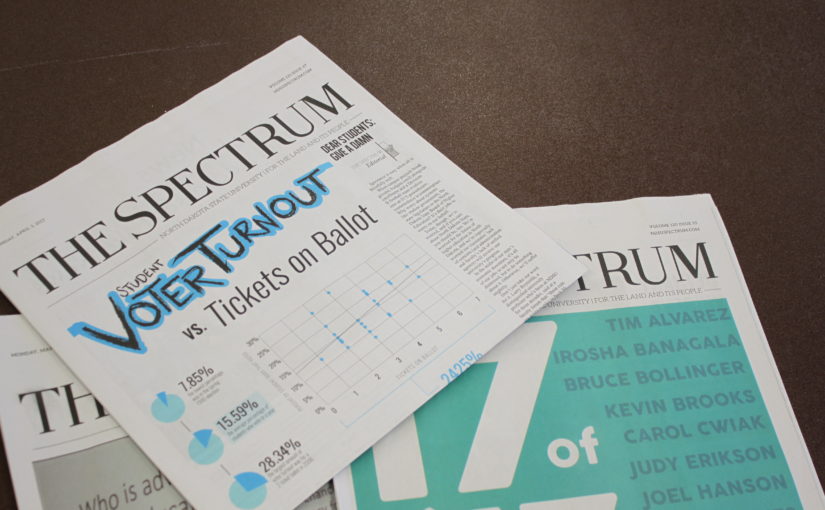
The Spectrum, the newspaper you are reading right now.
Occasionally, I’ll look at my dad reading a newspaper on his desk. I can’t help but think to myself he’s probably part of the last generation to ever experience actual physical newspapers.
I can’t imagine my little brother, born in 2000, and the Millennials like him, ever picking one of those things up again. Recently, in a hall government meeting, members were asked to vote on whether to move away from physical copies of news and move them instead onto an app called Buzz you could get on your phone.
Why? There was a more than a 70 percent drop in the number of papers being read in the halls and in the university in general. People aren’t all that interested in the physical anymore it seems.
Now call me sentimental, but that’s pretty sad.
There’s a difference between reading news on your device versus reading news from a newspaper. Certain details are missed out on. And I’m not talking about that fresh-new-book smell newspapers have that fill me up with excitement to read what’s on the page.
A newspaper just seems grander than a tiny little phone.
I’m talking about the purity. Newspapers are news incarnate, plain, simple and unadulterated. But websites are a bunch of other things — almost just waste lands of ads and click-bait and articles that were written up so hastily and without regard for quality that all credibility and honesty disappear in the foreground.
And not to discredit all the countless hours of hard work put into it by the workers, but they’re human. How can even the best of us manage to produce quality ethical news every single day without any of the ads and pop-ups that have to be there to support it?
In the rare occasion something actually important is reported online, it gets so bogged down by these news outlets racing to say “Got it!” and play the “Who can upload the fastest!” game that they skip on the news reporting and make up whatever sounds good. Who cares what actually happened?
But the first duty of the journalist is to the truth.
Now that is not to say that this all isn’t a problem with newspapers as well, but there is a certain patience and consistency with weekly or biweekly newspapers that a writer or reporter can actually afford to be, dare I say it, a journalist.
The virtual world just isn’t cutout for that. Personally, it’s a fear of mine that when newspapers go, so will real news. Currently, we are voting for that future with our money and with our views. But we are free to vote on whatever we choose. We can choose our future in this regard. We can keep alive what has been part of the essence of society for so long and has never failed us.
So what’ll it be?
